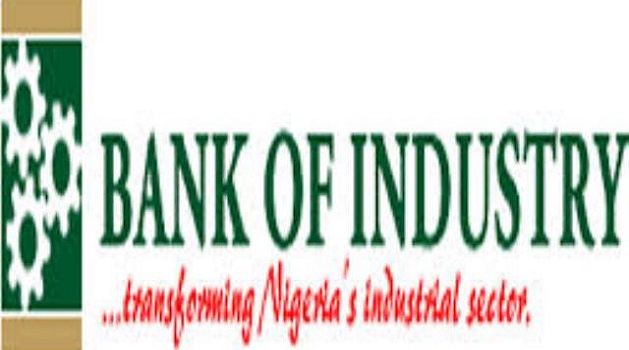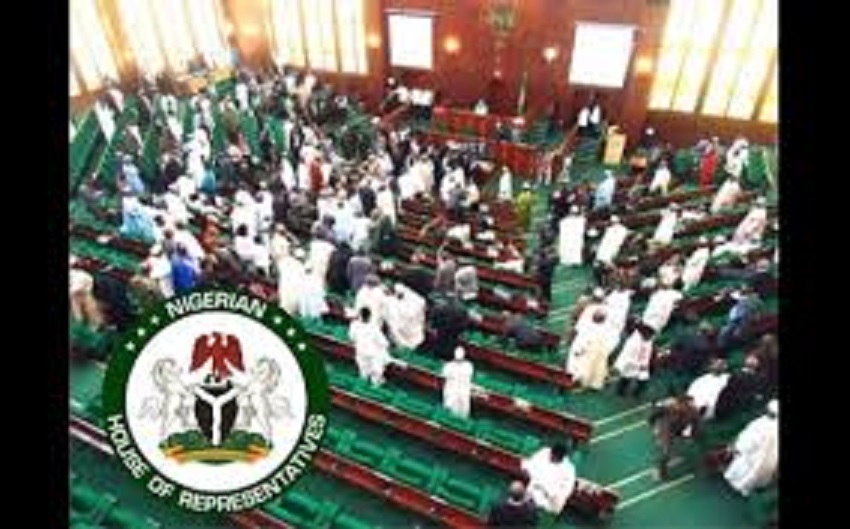General News
FG Unveils Committee to Advance Risk Management in Nigeria

To bolster Nigeria’s approach to risk management, the Federal Government has inaugurated a new committee dedicated to evaluating and addressing various national risks.

The announcement was made by the Managing Director and Chief Executive Officer of the Bank of Industry, Dr. Olasupo Olusi, during the Chartered Risk Management Institute (CRMI) annual conference held in Lagos on Thursday.
Dr. Olusi, who was honoured with an honorary fellowship at the event, revealed that the committee is tasked with presenting its findings to the presidency within four weeks. The initiative reflects the government’s commitment to enhancing risk management practices and mitigating potential financial and operational vulnerabilities.
The CRMI conference also featured the presentation of its inaugural Honorary Fellowship Awards. This year’s honorees included- Dr. Kadir Obafemi Hamzat, Deputy Governor of Lagos State; Dr. Olayemi Cardoso, Governor of the Central Bank of Nigeria (CBN); Dr. Zaccheus Adedeji, Executive Chairman of the Federal Inland Revenue Service (FIRS); Dr. Emomotimi Agama, Director General of the Meteorological Agency (NiMet); and Dr. Lamido Yuguda, Director General of the Securities and Exchange Commission (SEC).
Additional awards were given to Dr. Adaora Umeoji, Group Managing Director of Zenith Bank; Dr. Roosevelt Ogbonna, Managing Director/CEO of Access Bank; and Dr. Nneka Oyeali-Ikpe, Managing Director/CEO of Fidelity Bank.
A significant highlight of the conference was the signing of a Memorandum of Understanding (MOU) to form the Federation of African Risk Management Associations (FARMA). The MOU was endorsed by representatives from South Africa, Côte d’Ivoire, Morocco, Senegal, Benin Republic, and Kenya.
Dr. Olusi praised President Bola Tinubu for his support, stating, “President Tinubu understands the critical importance of effective risk management for our economy and has charged us with improving our approach to credit risks. We are expected to report our progress within the next four weeks.”
Dr. Ezekiel Oseni, President and Chairman of Council at CRMI, provided an update on legislative developments, noting that the Institute is sponsoring a risk management bill currently under review in the National Assembly.
The bill, which has passed its first reading, aims to establish mandatory risk management functions across all Ministries, Departments, and Agencies (MDAs).
Dr. Oseni highlighted the importance of governmental support for these initiatives, stating, “Our efforts are vital for enhancing economic resilience, and it is crucial that the government continues to back these initiatives.”
He also called on African governments, the African Union, and multilateral organizations like AfDB and Afrexim to support the newly established FARMA.
“We commend the efforts of those working towards establishing a rating agency for Africa and call for broader support for this significant initiative,” Dr. Oseni added.
Dr. Kadri Obafemi Hamzat, Deputy Governor of Lagos State, delivered a keynote address emphasizing the need for comprehensive risk management from a governance perspective.
He highlighted the impact of insecurity and technological advancements on societal stability and economic growth.
“Insecurity has caused significant turmoil and displacement, requiring decisive government action to ensure safety and uphold sovereign integrity,” Dr. Hamzat noted.
He also stressed the importance of legislating for data protection and addressing the risks associated with Artificial Intelligence (AI) and robotics.
Dr. Hamzat concluded by acknowledging the role of the CRMI in advancing transparency and accountability through risk management education and practices.
The conference marked a pivotal moment for Nigeria’s approach to risk management, underscoring both national and regional commitments to enhancing risk assessment and response mechanisms.
General News
MoMo PSB Launches Refer & Win Promo: Free Airtime or Data for Life Awaits Nigerians

MoMo PSB, a subsidiary of MTN Nigeria and a leading provider of digital financial services, has unveiled its Customer Refer & Win Promo, an exciting initiative aimed at rewarding loyal customers with free airtime or data for life.
This campaign underscores MoMo PSB’s commitment to advancing financial inclusion and enhancing the digital banking experience for millions of Nigerians.
The promo offers customers the chance to win incredible prizes, including free airtime or data every month for 50 years for 11 lucky winners, and consolation prizes for 110 winners who will receive airtime or data every month for one year.
Open to both new and existing customers, the initiative encourages participants to perform qualifying transactions and refer friends and family to activate or reactivate their accounts.
Phrase Lubega, CEO of MoMo PSB, emphasized the company’s dedication to customer satisfaction and seamless financial transactions. “This initiative is about giving back to our customers while promoting the ease and convenience of using MoMo for everyday transactions.
“By simply transacting on the platform, customers get the chance to enjoy free airtime and data for life, an offer that truly rewards their loyalty,” he said.
To participate, customers must complete eligible transactions such as MoMo-to-MoMo transfers, other bank transfers, bill payments, betting wallet top-ups, and airtime/data purchases.
Referrals also earn participants an instant 100MB for every active referral. Weekly electronic draws will determine winners, with the promo running for 12 weeks from April 3rd to June 25th, 2025.
MoMo PSB will also engage users through nationwide activations, interactive sessions, and digital campaigns to drive awareness and participation.
This initiative further solidifies MoMo PSB’s role as a key player in Nigeria’s financial services sector, offering innovative solutions that simplify transactions and enhance customer satisfaction.
General News
Reps Panel Demands N182bn Refund from Remita Over TSA Discrepancies

House of Representatives Public Accounts Committee has directed Remita, a financial technology firm, to refund N182.77 billion to the federal government. The sum was allegedly withheld from the Treasury Single Account (TSA) since 2015.

The directive was issued on Wednesday during a committee meeting in Abuja, following the submission of a forensic audit report by consulting firm Seyi Katola & Company (Chartered Accountants), which uncovered significant discrepancies in revenue remittances.
Remita, owned by financial services company SystemSpecs, is the online platform through which federal government agencies remit revenue into the TSA. In November 2023, the House launched an investigation into suspected revenue leakages through the platform.
Chairman of the committee, Bamidele Salam, said the decision was reached based on evidence presented by the forensic auditors and documents submitted by Remita and other stakeholders in the TSA ecosystem.
Adewale Oyebamiji, managing partner at the auditing firm, presented the breakdown of liabilities, stating that SystemSpecs was responsible for N3.42 billion in under-refunded transaction processing fees, N101.85 million in unpaid acquirer fees, and N179.25 billion in unremitted collections.
The report also applied the Central Bank of Nigeria’s monetary policy rate of 27.25 percent to determine interest charges. According to the findings, the under-refund of transaction processing fees amounted to N993 million, with interest charges of N2.42 billion, bringing the total to N3.42 billion. For unpaid acquirer fees, N29.60 million was due, with interest charges of N72.25 million, totalling N101.85 million. Regarding non-remittance of collections, N54.24 billion was due with N125 billion in interest, totalling N179 billion.
“The committee hereby recommends that SystemSpecs Ltd be compelled to refund the total sum of N182,769,245,175.20 to the federal government asset recovery account domiciled at the Central Bank of Nigeria (CBN), account number: 0020054161191,” the report stated.
The committee noted that some deposit money banks have already complied with similar refund directives and urged other TSA value chain service providers yet to comply to do so without delay.
Chairman Salam praised the forensic auditors for what he described as a thorough and patriotic investigation.
General News
FG Launches Survey to Encourage Nigerian Digital Firms Spread Across Africa

The Federal Ministry of Industry, Trade and Investment has announced the launch of the Digital Services Survey in a strategic effort to empower Nigerian digital service providers to expand across Africa under the African Continental Free Trade Area (AfCFTA).

The ministry’s Director Press and Public Relations, Dr. Adebayo Thomas in a statement said the aims of the digital services initiative is to map and support the growth of Nigerian digital services throughout the continent and simplify the process for digital businesses to navigate regulatory environments and expand their reach across African markets.
He added that Nigerian digital businesses often face challenges when entering other African markets, including uncertainties around service registration, applicable regulations, and responsible agencies.
Thomas said: “Unlike physical goods, digital services don not always align with existing trade categories. This framework will serve as a common language, ensuring consistent treatment of digital services across borders” and its benefits include unlocking new markets by identifying target African countries for expansion, as Nigeria can focus trade negotiations on opening specific markets for digital services.”
He added, “The framework would also create a Digital Services Repository and for the first time, Nigeria will compile a comprehensive database of digital service providers, their expansion plans, and the challenges they face.
“Furthermore, the framework would strengthen Nigeria’s digital leadership by positioning the country as a proactive leader in Africa’s digital economy, shaping the rules and standards for digital trade.”

 General News3 days ago
General News3 days agoWorld Bank Announces $800m Support for Nigeria’s CCT Initiative

 E-Financial2 days ago
E-Financial2 days agoFour Red Flags Nigerians Ignored until CBEX Crashed- DUBAWA
- General News3 days ago
MIT MBA Students Explore Digital Innovation at MTN Nigeria

 Telecom2 days ago
Telecom2 days agoBanks, Telcos Mull New Billing Plans for USSD Airtime Payments

 Telecom3 days ago
Telecom3 days agoHow Starlink Took over Africa’s Largest Internet Market

 General News3 days ago
General News3 days agoNITDA, SecDojo Forge Partnership to Strengthen Nigeria’s Cybersecurity Resilience

 E-Business2 days ago
E-Business2 days agoNIPOST in Intensive Care, Needs Reforms Need to – Kekemeke

 Telecom3 days ago
Telecom3 days agoMTN Champs Lagos Continental Relays: A Celebration of Sportsmanship and Fun




























